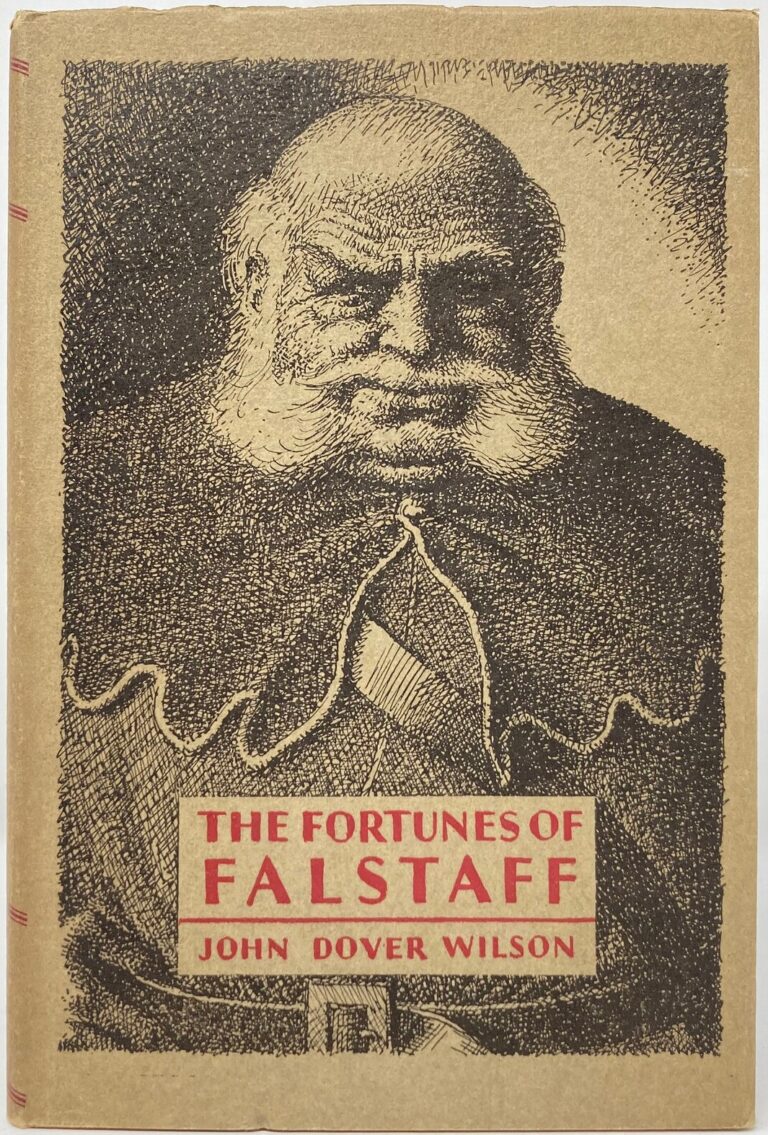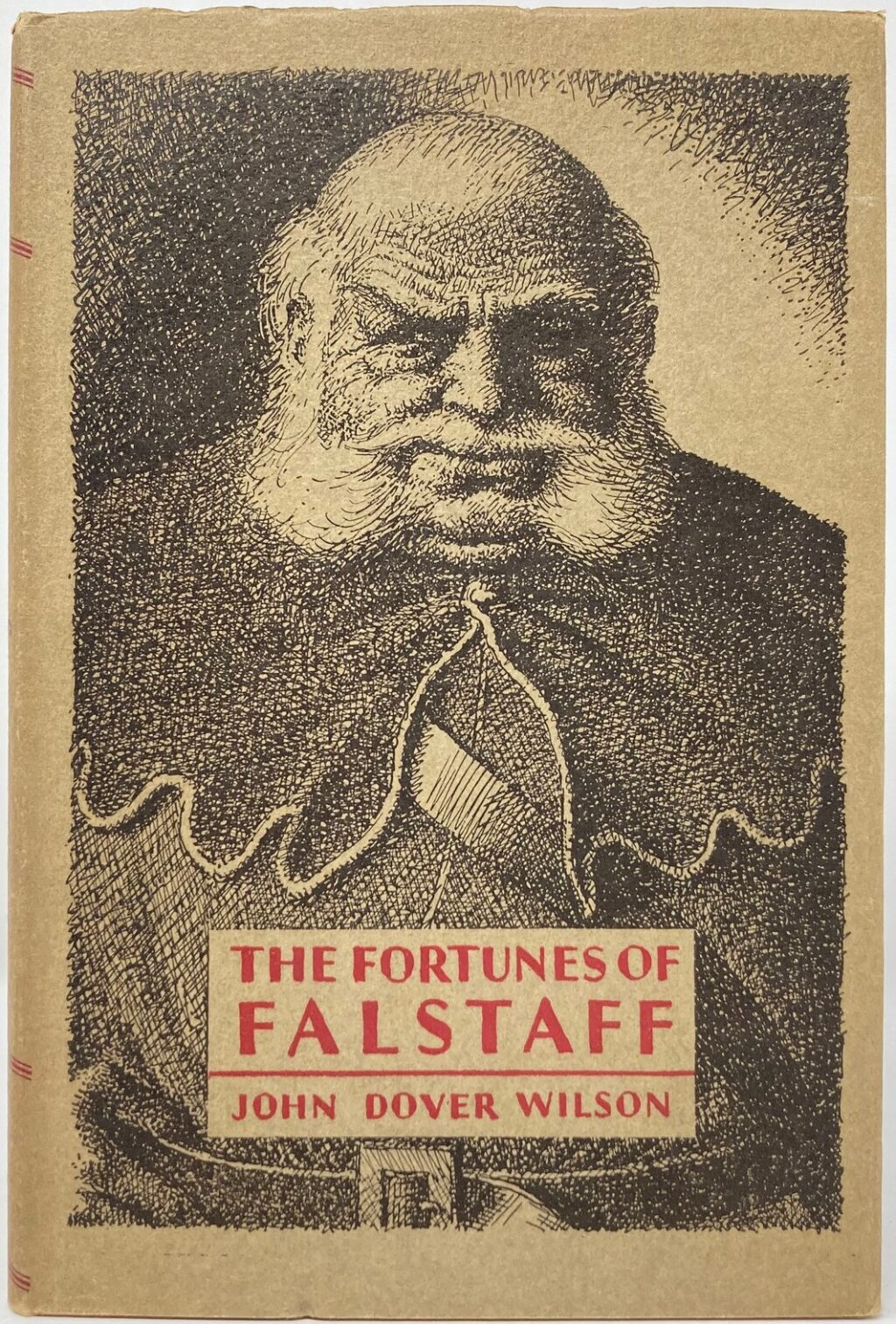J. Dover Wilson, The Fortunes of Fallstaff (1943)
Like many a Sagittarius, Robert Menzies suffered from the unfortunate luck of having his 20 December birthday fall perilously close to Christmas. But it was not just his problem, as this was sure to make shopping for the prime minister (already a difficult task considering the array of gifts the role entailed) even harder. Nevertheless, many people still managed to find something suitable, and gifts from those who were closest to Menzies offer revealing insights into the man himself.
Alfred Stirling served as Menzies’s principle private secretary from 1934-6, before going on to have a decorated diplomatic career, and the two remained intimate friends for the rest of their lives. Knowing Menzies so well, Stirling was acutely aware of Menzies’s peculiar obsession with Shakespeare, which he used to read aloud before important speeches to practise his elocution. An entire book dedicated to analysing just one Shakespeare character is certainly not on many people’s ‘must read’ list, but Stirling knew it was just the sort of thing Menzies would be into. Hence, he bought The Fortunes of Falstaff as a birthday present as soon as it was published.
It turns out that Falstaff was a character with a notable Menzian connection, because the portly, vain, and boastful comic relief in Henry IV, was frequently used as a model by which to lampoon over-sized politicians. And if the extra-large Lord Warden of the Cinque Ports uniform we have displayed in the Robert Menzies Institute’s museum is anything to go by, Menzies fit perfectly into just such a category.
In a Bulletin article published in 1961, renowned Australian political cartoonist Les Tanner, recalled that in the satirical shows he and his communist friends would put on in Newtown’s longstanding ‘New Theatre’, he was frequently recruited to play a Menzian Falstaff:
‘So we got a Progressive revue, “Folies Bourgeois.” I forget which election it was, but it didn’t matter, the pattern was the same and the main cast of characters was unchanged. “Defeat Menzies Now.” “Menzies Must Go.” “For Peace and Progress Vote Communist.” I did the sets, co-produced and played in it. (It was that kind of a revue; most other experienced people in the theatre had the sense to stay out of it. I was cast as Menzies in the first sketch. Menzies was a favourite role in the N.T. He gets all the laughs, and by a process that escaped the watchful eyes of the cultural cadres, actually becomes almost loveable. Everyone goes into gales of laughter at the sight of him. I must point out that this role was not exactly made to measure. I am, to put it mildly, thin, and in those days I averaged eight stone six pounds, but with false belly at the ready, thick grease paint, eyebrows and a false upper lip I was Menzies.
Menzies is a sort of Falstaff in New Theatre reviews – the wicked fat man who enjoys villainy, who has only to appear on stage to win roars of laughter, who inevitably suffers doom and dismay only to rise phoenix-like in the nest revue. The actor who plays him always gets the best notices in Tribune [the Communist Party’s newspaper] and a minor reputation as a master of make-up. The formula for Menzies is long, oval face, black eyebrows and a long upper lip. If you haven’t got the face, then the eyebrows and lip will do, and if you haven’t got the lip a little nose putty glued to the channel from your nose will work wonders.’
You might also like...
Sign up to our newsletter
Sign up for our monthly newsletter to hear the latest news and receive information about upcoming events.



